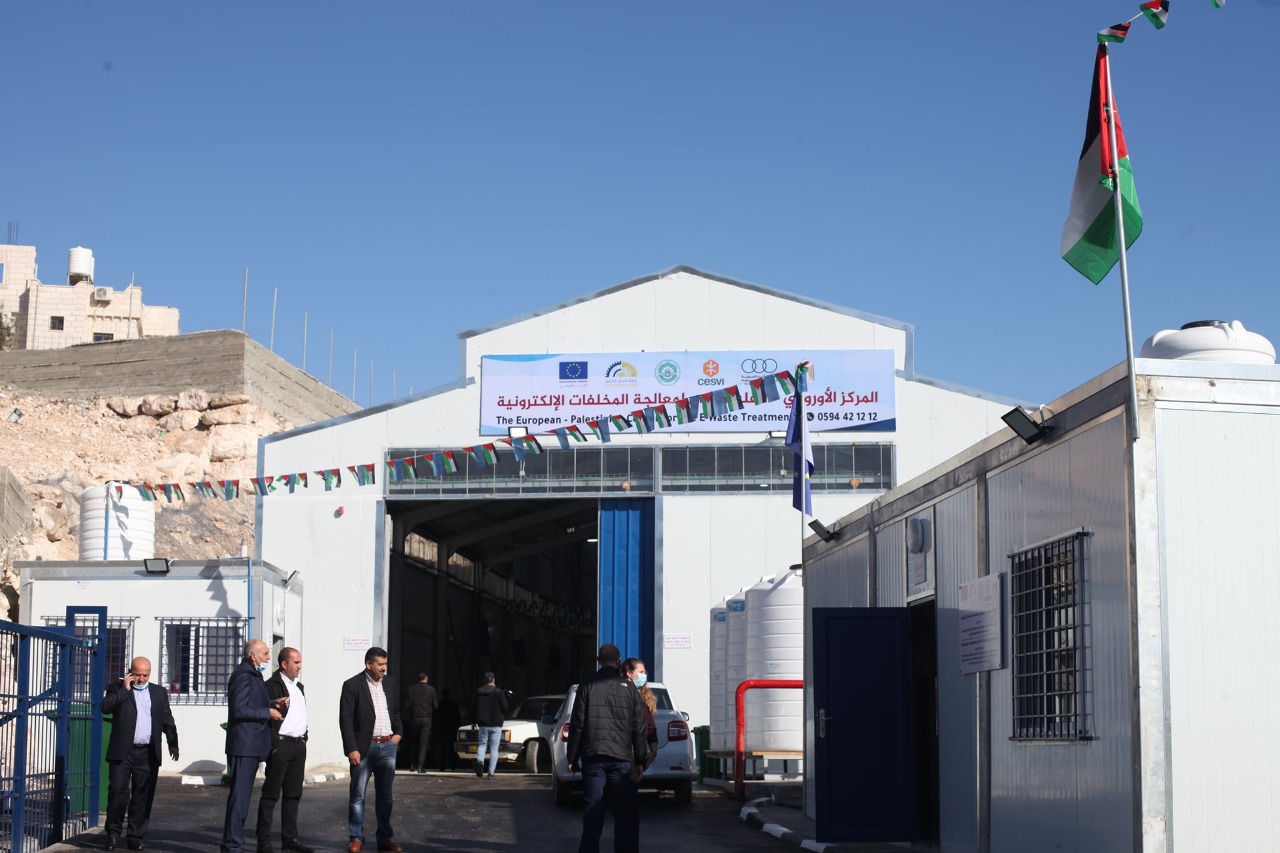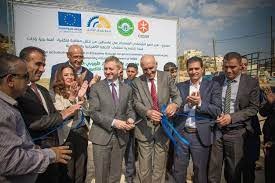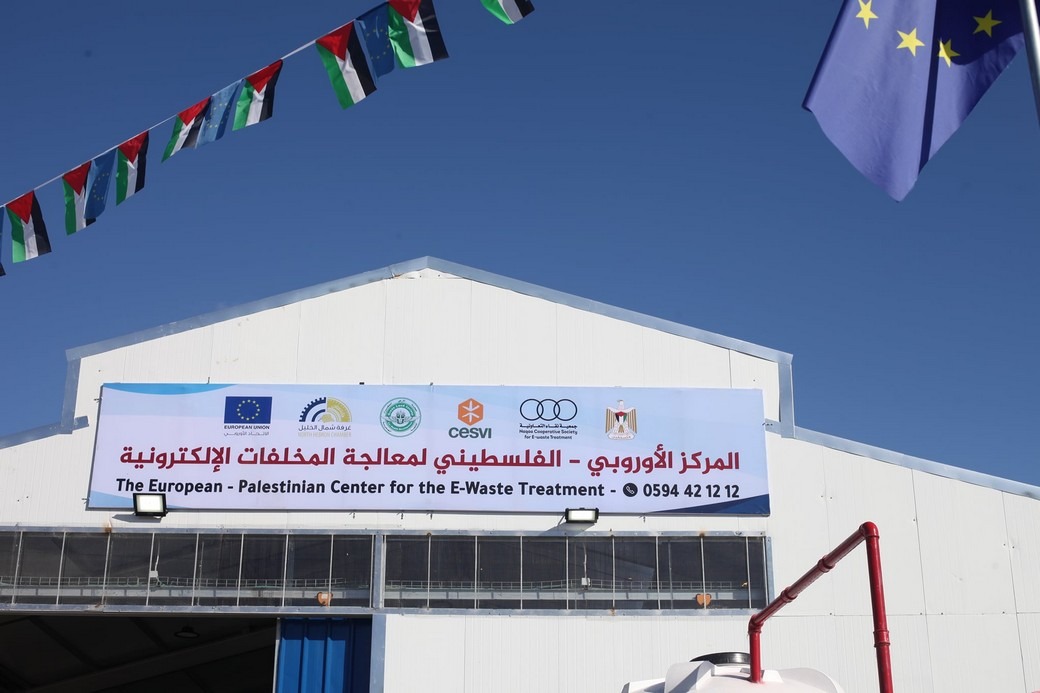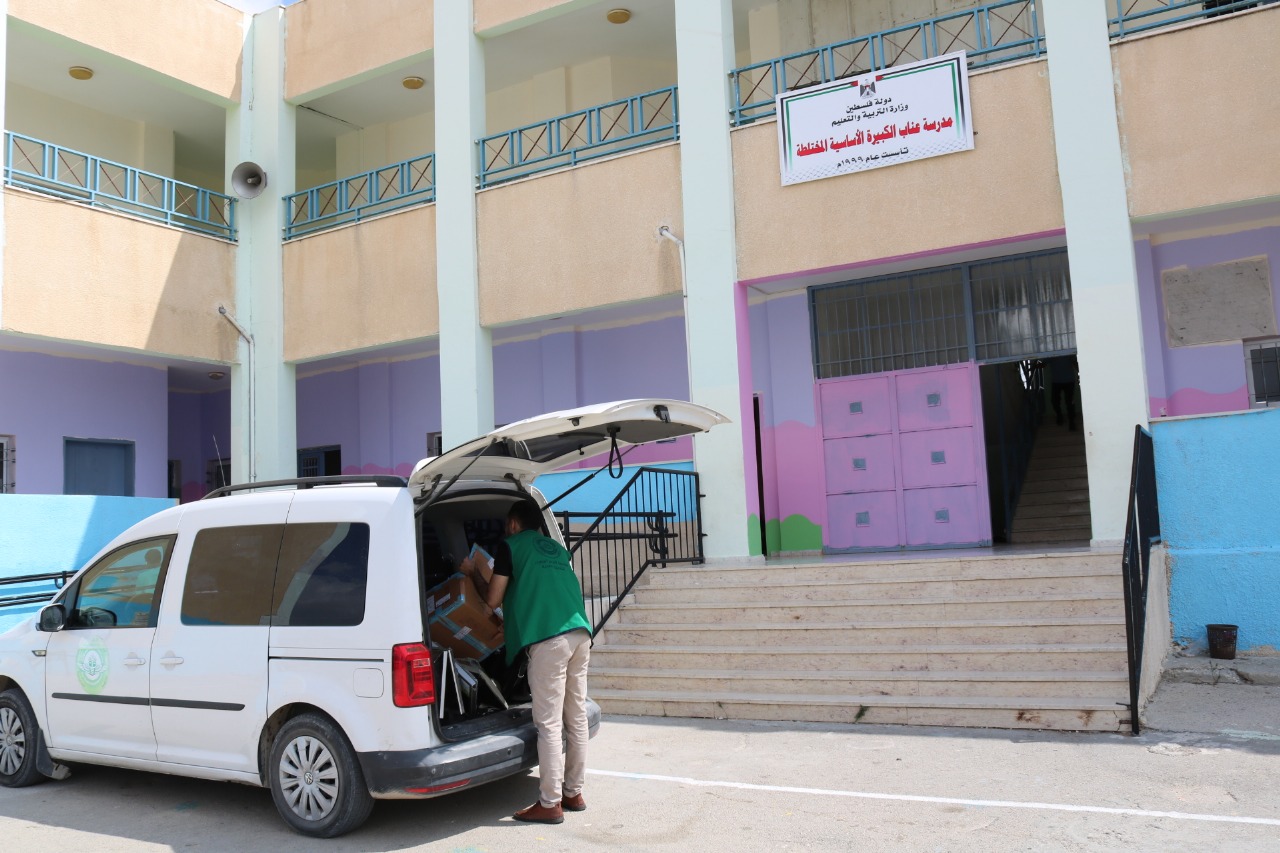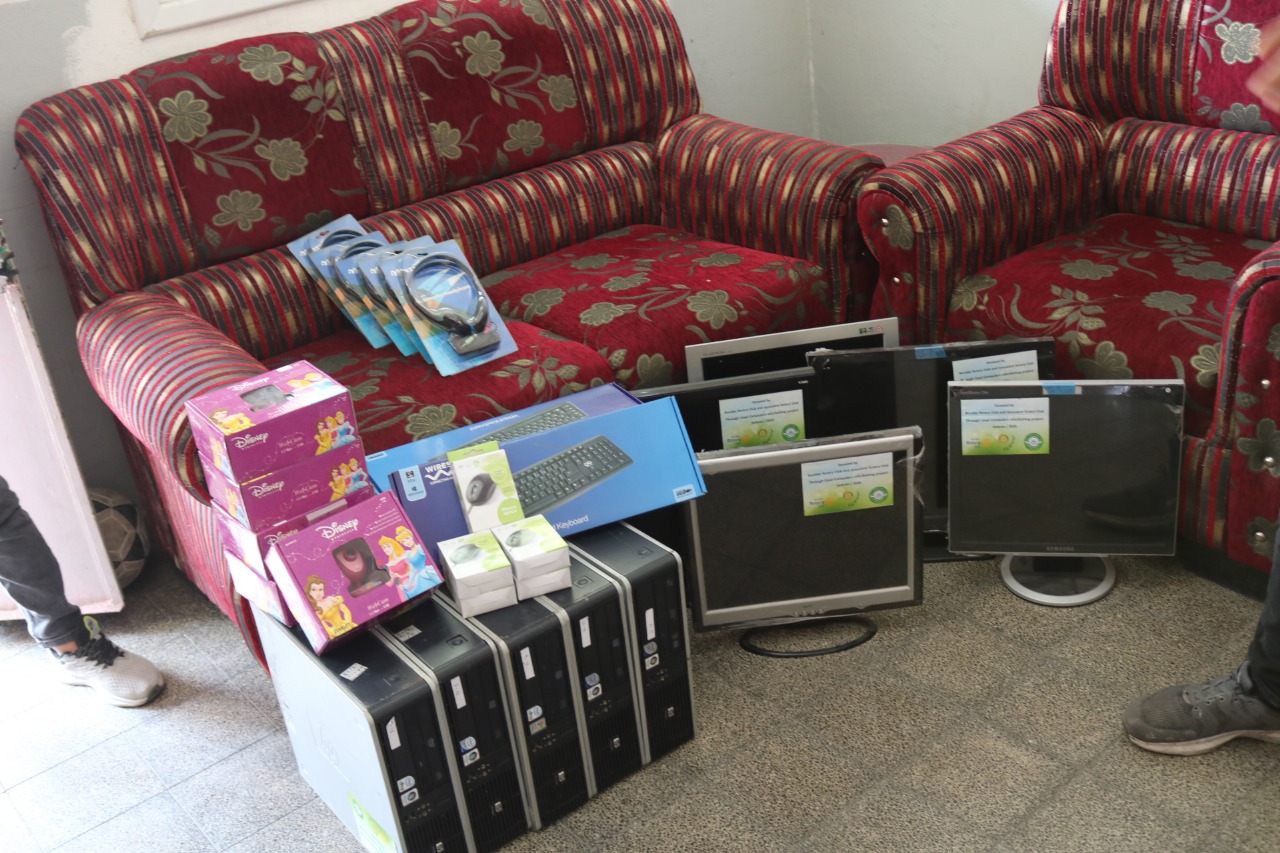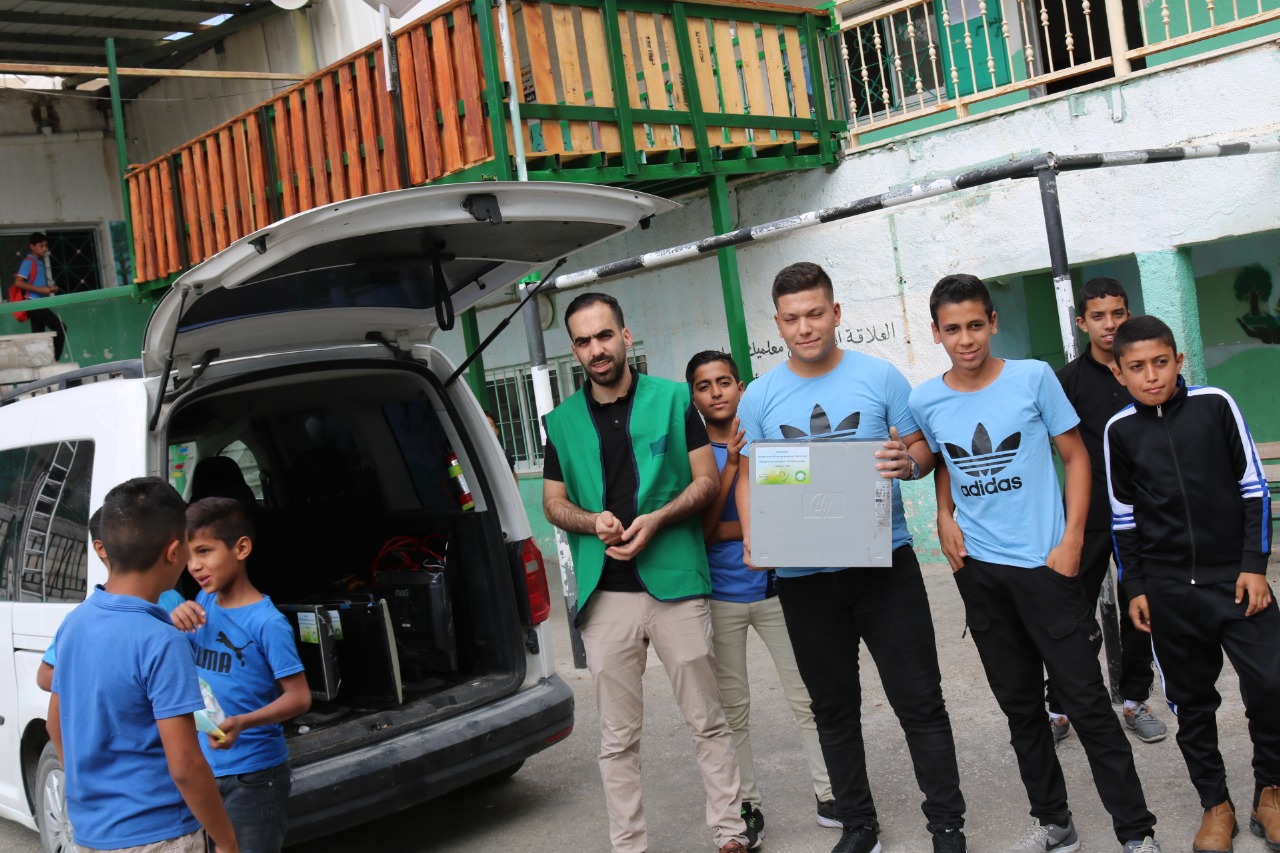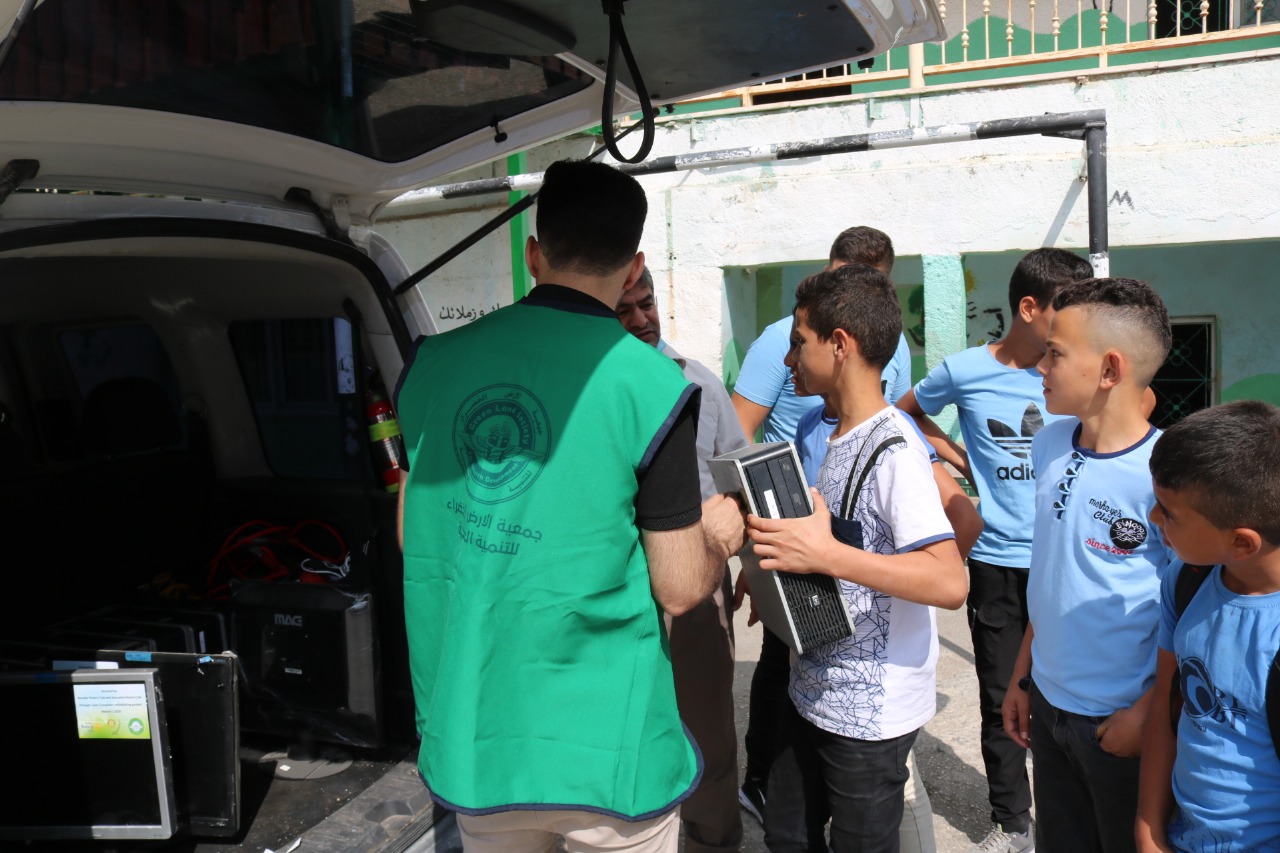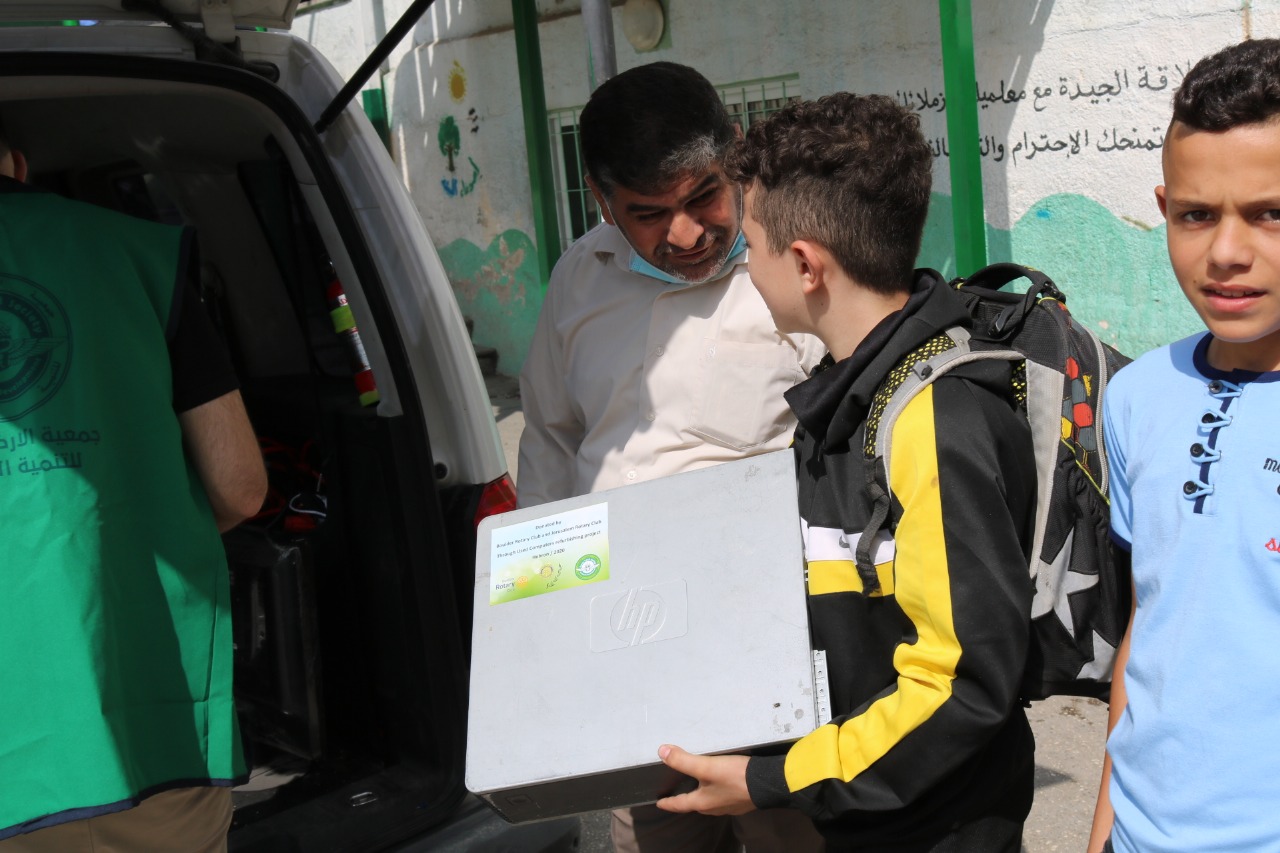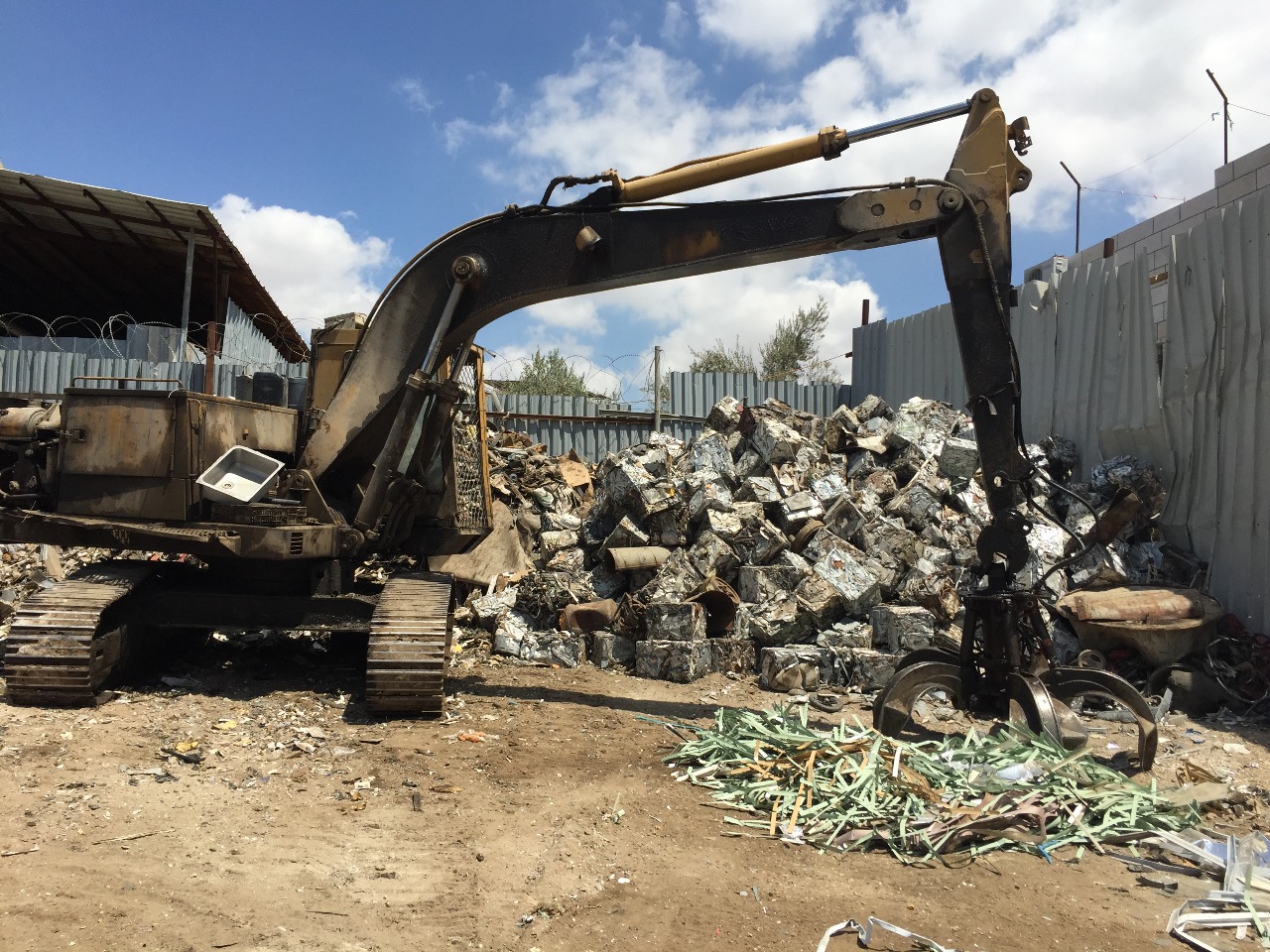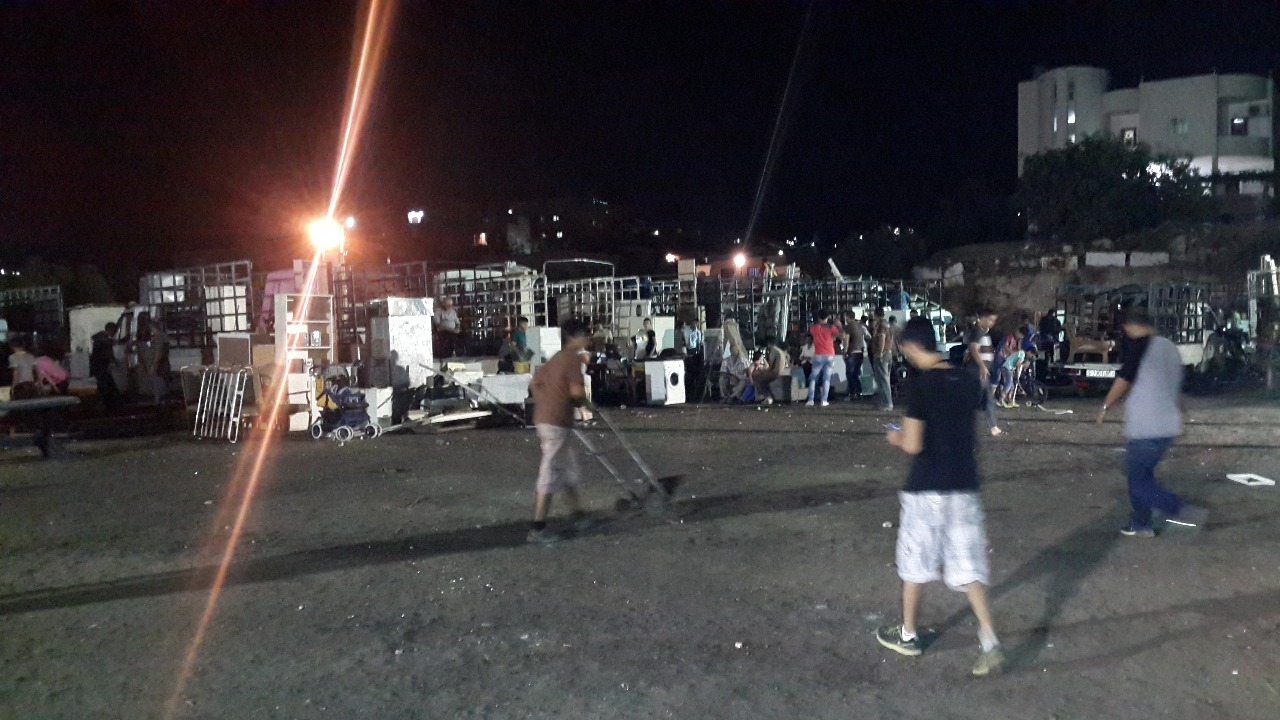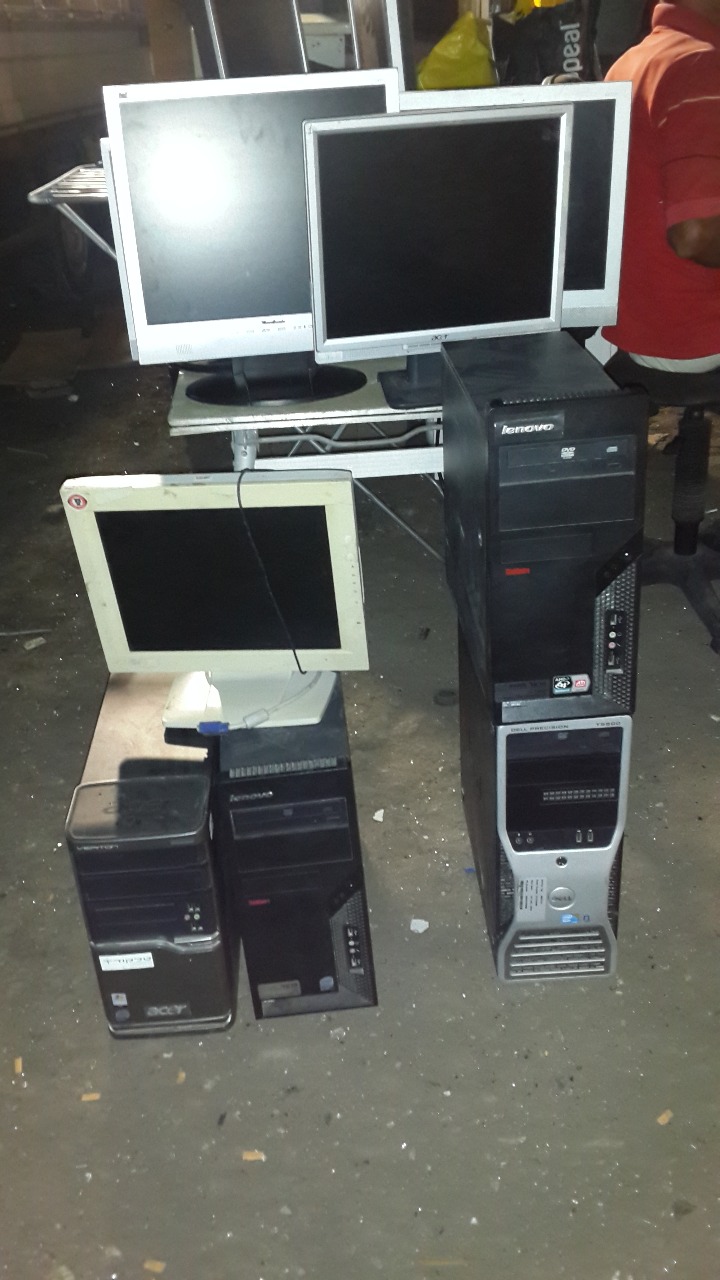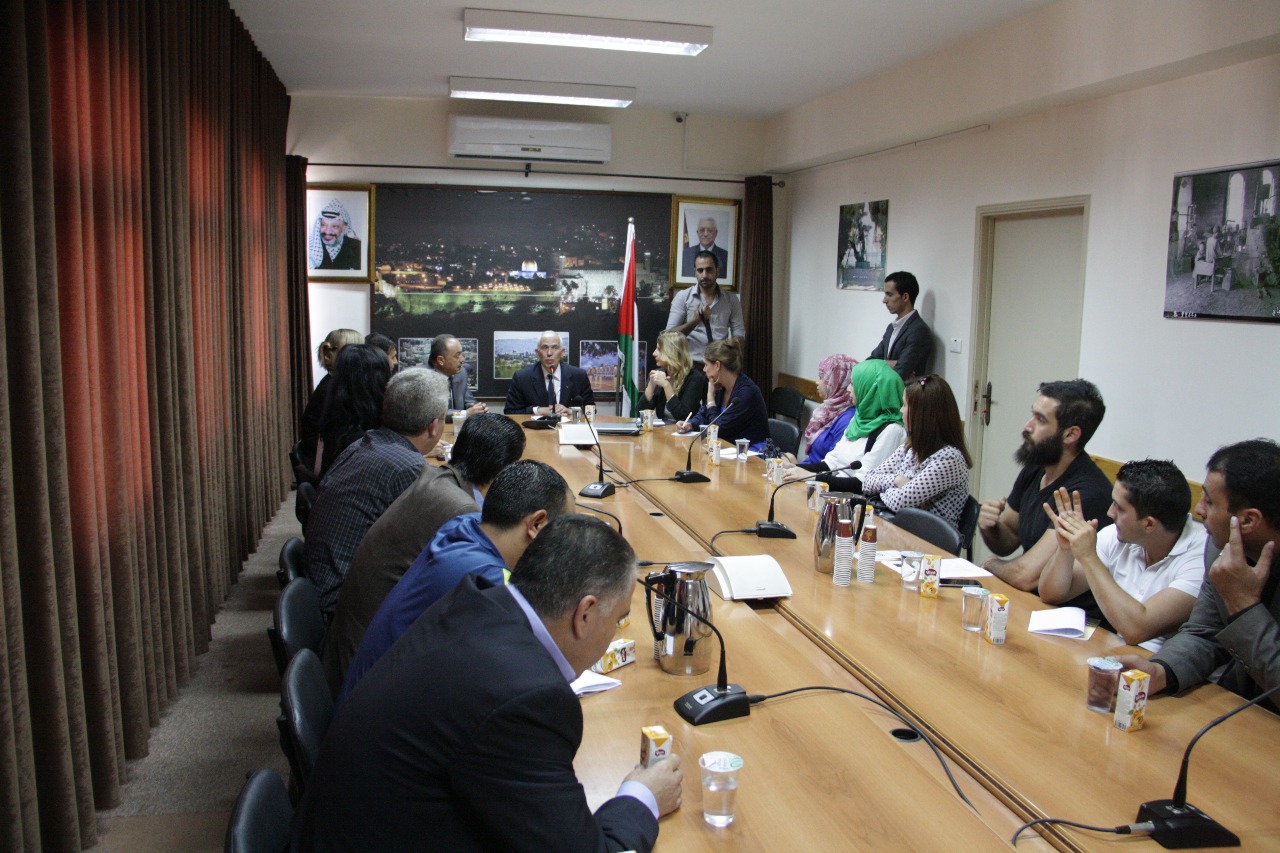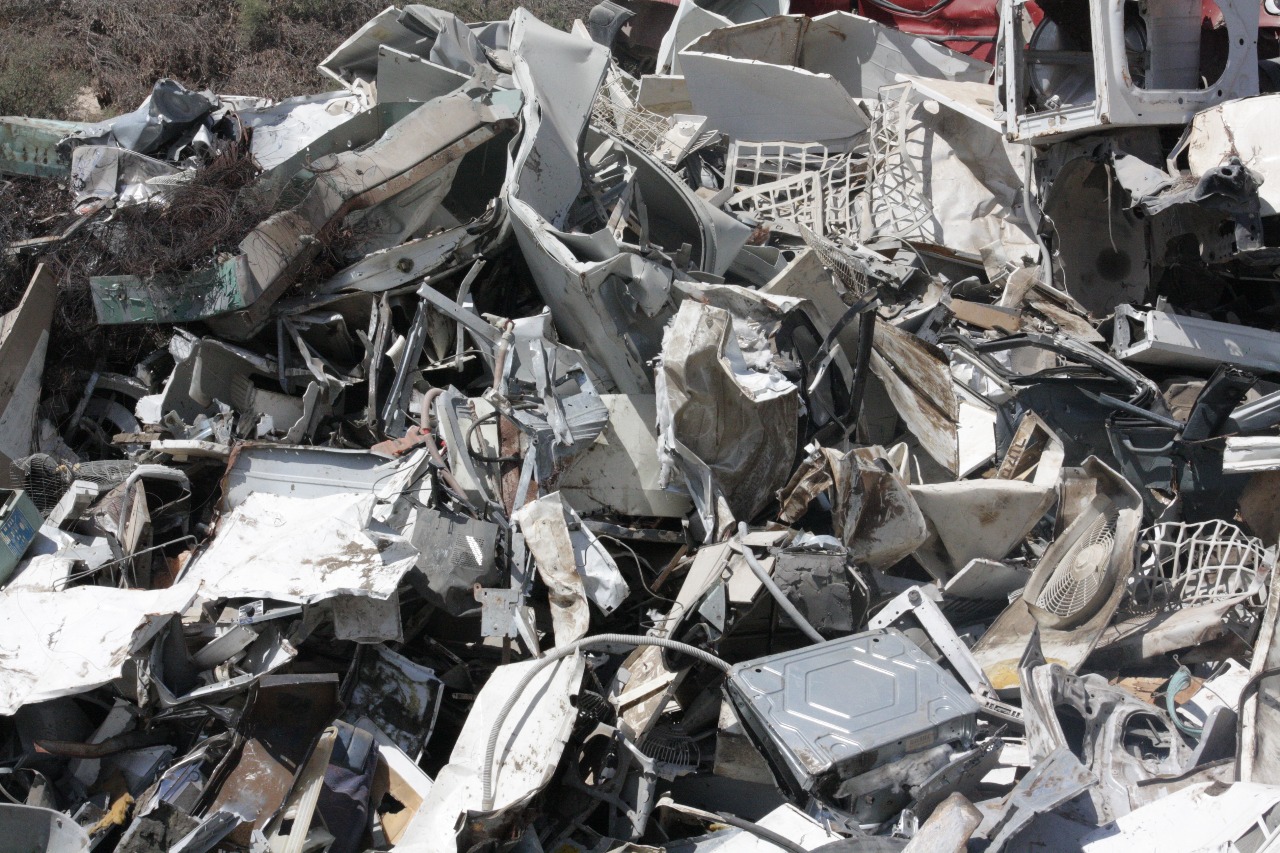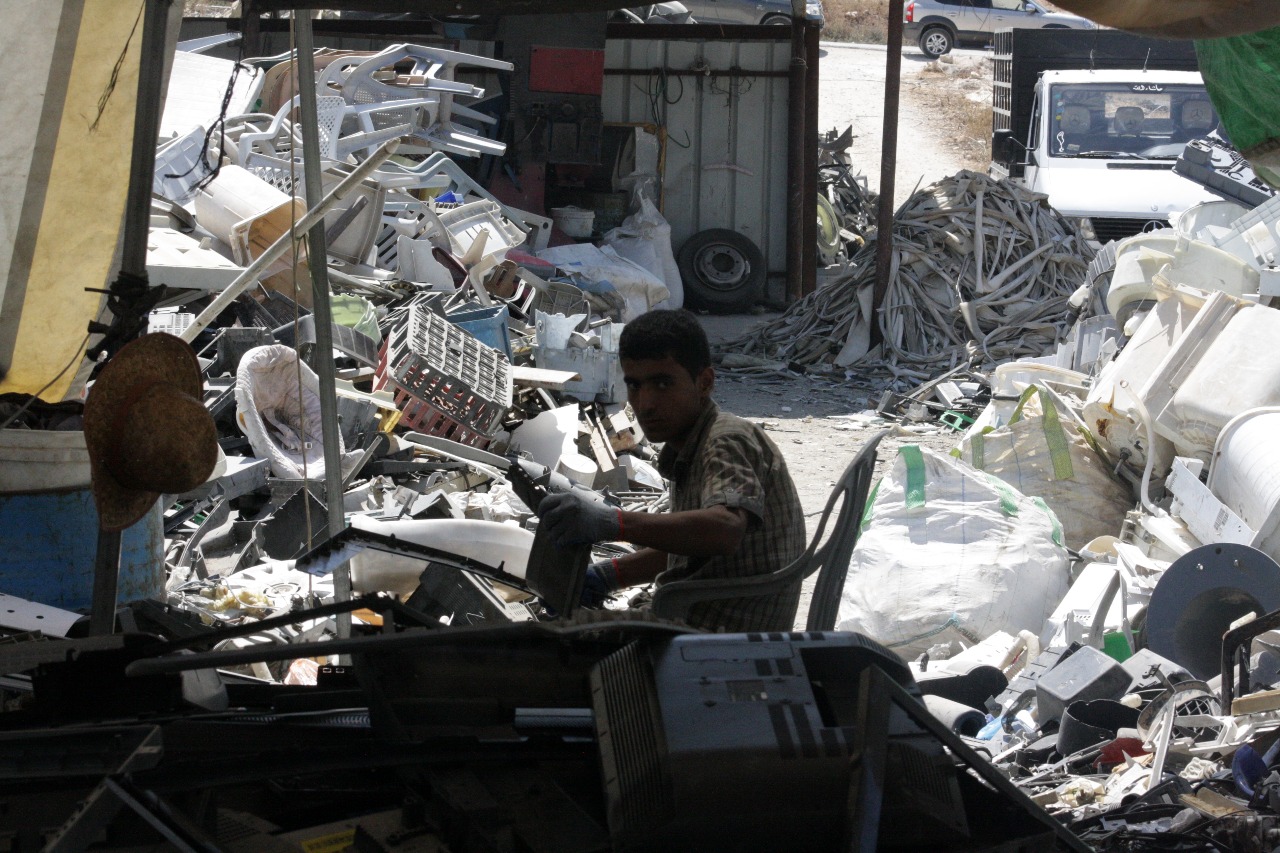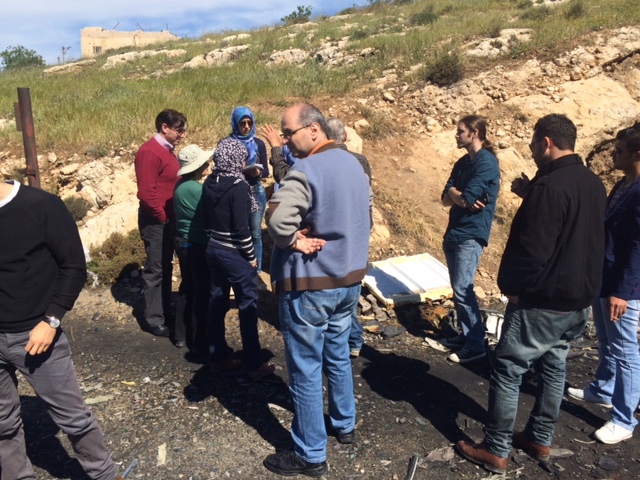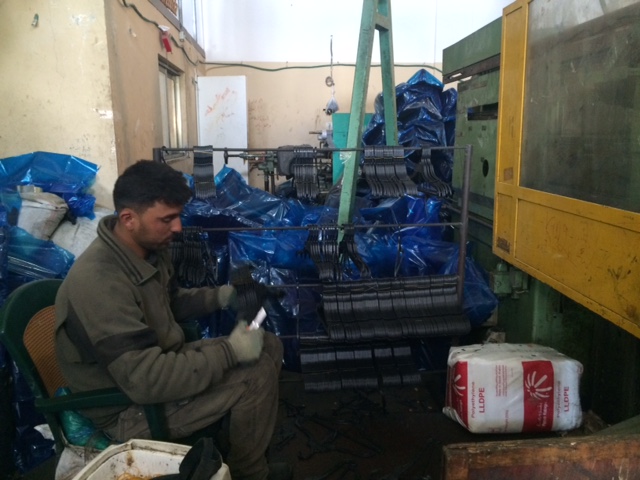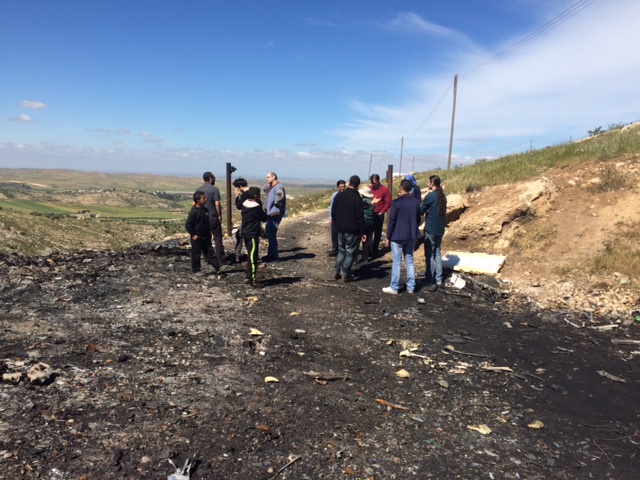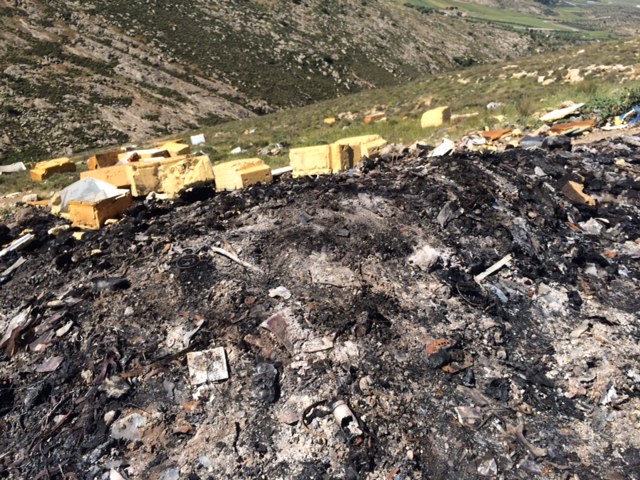Environmental projects
The Green Land Society for Health Development (GLSHD) identifies environmental awareness and intervention as one of its core objectives. In response to growing environmental challenges in Palestine, GLSHD has implemented several impactful projects aimed at fostering sustainable practices and promoting ecological responsibility within communities.
With generous funding from the European Union (EUR 1.6 million) and in collaboration with CEZVY and the North Hebron Chamber of Commerce, GLSHD led the establishment of the European-Palestinian Center for Electronic Waste Recycling (ETHNA) — a pioneering initiative addressing the environmental and health hazards of informal e-waste processing.
The project involved the development of a fully equipped recycling cooperative on more than 10 dunums of dedicated land, providing a structured and environmentally responsible alternative to cable burning and informal dismantling practices. The center was outfitted with advanced stripping machines and recycling equipment, allowing electronic waste collectors to safely extract materials (e.g., copper) without releasing harmful emissions.
Key objectives and outcomes of the project include:
Protecting the environment and surrounding communities from toxic emissions
Providing dignified, safe, and sustainable livelihoods for electronic waste workers
Reducing the reliance on harmful open-air burning for cable stripping
Promoting circular economy principles through recycling and reuse
This center serves as a model for sustainable e-waste management and represents a critical step toward formalizing and regulating the informal recycling sector in Palestine. By aligning economic opportunity with environmental protection, GLSHD and its partners have offered a scalable and socially responsible solution to one of the region’s most pressing environmental challenges.
In alignment with its environmental and social responsibility goals, GLSHD launched an innovative initiative to refurbish used computers and donate them to underserved schools, with the generous support of the Rotary Club of Colorado.
This project aimed to:
• Promote digital inclusion by equipping school computer labs with functional technology
• Support educational development by enabling hundreds of students to access computers and digital learning tools
• Reduce electronic waste through refurbishment and reuse
• Foster a culture of recycling and sustainability among both students and communities
By extending the life cycle of electronic devices and integrating environmental values into education, this initiative not only empowered Palestinian students but also highlighted sustainable solutions to e-waste management. The project serves as a model for combining technological empowerment with environmental stewardship.
As part of its commitment to environmental and public health, GLSHD has conducted a series of studies investigating the effects of electronic waste (e-waste) burning on the health of communities and the surrounding environment. These research efforts aimed to generate evidence-based insights to guide local and national environmental policy.
The three major studies implemented included:
• Electronic Waste Feasibility Study – analyzing the scope, sources, and economic potential of safe e-waste management
• Health Impact Assessment of Electronic Waste Burning – documenting the physical and psychological health consequences among affected populations
• Environmental Health Impact Study – evaluating the environmental degradation and contamination resulting from informal e-waste processing and open-air burning
The findings from these studies were published and widely disseminated, serving as critical knowledge resources for stakeholders, decision-makers, and policymakers. The data generated has informed discussions on environmental regulation, sustainable waste management, and community protection, particularly in areas heavily affected by unregulated e-waste burning.
These efforts underscore GLSHD’s role in bridging research with advocacy and action, supporting the development of evidence-informed environmental health policies in Palestine.

